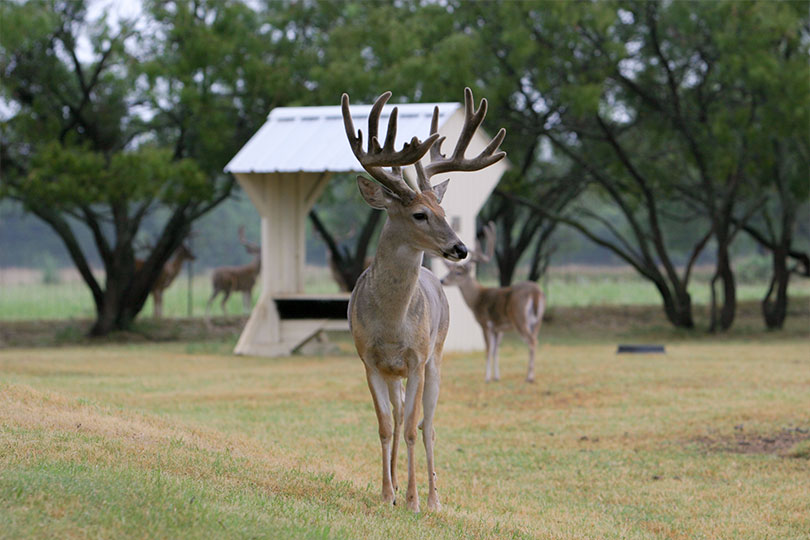Chronic wasting disease (CWD) was detected in a deer breeding facility in Kimble County. In response to the CWD detection, the Texas Parks and Wildlife Department (TPWD) adopted an emergency rule implementing a new surveillance zone in the county.
Surveillance zones cover areas where the presence of CWD could reasonably be expected, enhancing efforts to monitor and contain disease spread. All harvested deer, elk or CWD-susceptible species within the zone must be brought to a TPWD check station or drop box within 48 hours for testing.
Carcass movement restrictions also apply within the surveillance zone.
TPWD will provide a staffed check station and drop boxes in Segovia and a drop box at South Llano River State Park. Please check the Kimble County surveillance zone webpage for the hours staff will be present.
CWD is a fatal, neurological disease found in certain cervids including deer, elk, moose and other members of the deer family. The disease is highly transmissible and can remain infectious on the landscape for several years.
Clinical signs of CWD may include progressive weight loss, stumbling or tremors with a lack of coordination, loss of appetite, teeth grinding, abnormal head posture and/or drooping ears, as well as excessive thirst, salivation or urination. These signs may not become evident until long after animals have become infected.
TPWD updates its CWD page with a map of all CWD zones, check stations and positive case tracking.
The site also provides answers to frequently asked questions, videos with information from wildlife veterinarians, best management practices for hunters and landowners and the latest news about the disease.

